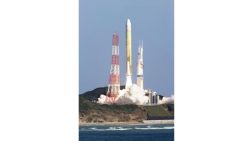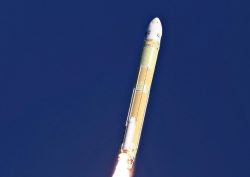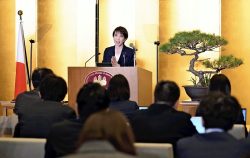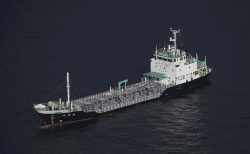17:41 JST, September 4, 2024
GENEVA (AFP-Jiji) — Tokyo-Yokohama remains the world’s largest science and technology cluster in 2024, though clusters in middle-income economies are seeing the fastest growth in the innovation sector, the United Nations said Aug. 27.
The U.N.’s World Intellectual Property Organization (WIPO) said Shenzhen-Hong Kong-Guangzhou remained in second place, while Beijing overtook Seoul to grab third place.
WIPO, the U.N. agency dealing with patenting and innovation, said that China, for the second consecutive year, led with the most clusters in the top 100, at 26 (up two), followed by the United States with 20 clusters.
WIPO’s Global Innovation Index publishes an annual top 100 science and technology clusters ranking, using patent filing and scientific publishing data to identify local concentrations of world-leading science and technology activity.
The top two clusters combined account for almost one of every five patent applications filed globally, driven by Mitsubishi Electric and Chinese telecom giant Huawei.
While there was little change in the top 10, further down the rankings, clusters in middle-income economies experienced the strongest growth, WIPO said.
China’s Hefei and Zhengzhou led the way with 23% and 19% growth, respectively, in science and technology output, followed by Cairo (11%), Chennai (8%) and Istanbul (8%).
“Most North American and European clusters fell in the ranking,” WIPO said.
Sao Paulo, in 73rd place, was the only top 100 cluster in Latin America, while Cairo in 95th spot was the only one in Africa, with the Egyptian capital entering the rankings for the first time.
Kuala Lumpur, ranked 93rd, also made its debut in the top 100 clusters.
“Science and technology clusters serve as the foundation of robust national innovation ecosystems,” WIPO chief Daren Tang said.
“It is encouraging to see these clusters thriving not just in the mature hubs of industrialized nations, but also in the emerging innovation hotspots of selected developing economies.”
After China and the United States, Germany had the most clusters with eight, led by Munich in 22nd place.
South Korea and India, led by 56th-placed Bengaluru, had four each, while France, Britain, Japan and Canada have three clusters each in top 100.
WIPO said the clusters with the most intensive science and technology activity in proportion to population size were Britain’s Cambridge, followed by San Jose-San Francisco in the United States and Eindhoven in the Netherlands.
Top Articles in Science & Nature
-

Japan Institute to Use Domestic Commercial Optical Lattice Clock to Set Japan Standard Time
-

Space Mission Demonstrates Importance of International Cooperation, Astronaut Kimiya Yui Says
-

Japan to Face Shortfall of 3.39 Million Workers in AI, Robotics in 2040; Clerical Workers Seen to Be in Surplus
-

Record 700 Startups to Gather at SusHi Tech Tokyo in April; Event Will Center on Themes Like Artificial Intelligence and Robotics
JN ACCESS RANKING
-

Japan Institute to Use Domestic Commercial Optical Lattice Clock to Set Japan Standard Time
-

Israeli Ambassador to Japan Speaks about Japan’s Role in the Reconstruction of Gaza
-

Man Infected with Measles May Have Come in Contact with Many People in Tokyo, Went to Store, Restaurant Around When Symptoms Emerged
-

Prudential Life Insurance Plans to Fully Compensate for Damages Caused by Fraudulent Actions Without Waiting for Third-Party Committee Review
-

Woman with Measles Visited Hospital in Tokyo Multiple Times Before Being Diagnosed with Disease























